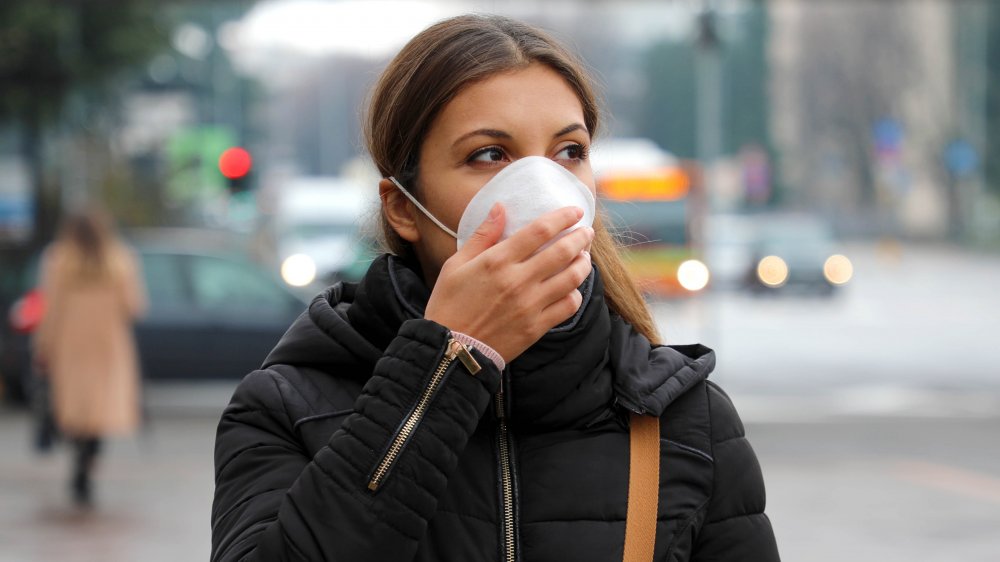Will A Face Mask Really Protect You Against Coronavirus?
We've been told to wash our hands. We've been told to practice social distancing. The CDC (via Consumer Reports) has also told us that wearing a surgical mask if we're not sick wasn't necessary. But new evidence is forcing health officials including the CDC to take a second look at its existing recommendations surrounding the use of face masks.
CDC Director Robert Redfield told NPR that new data shows that as many as 25 percent of those who are infected with COVID-19 are asymptomatic, which means they show no symptoms but are spreading the disease. There are also those who do have symptoms, who are contagious even up to 48 hours before symptoms actually set in, and both these conditions can explain why the virus is spreading so quickly. Keeping everyone in masks ensures that even those who might be infected don't spread the coronavirus, and can protect those who are well.
Medical experts have already taken on social media to tell the public that wearing masks may be one way to help stop the spread of the virus. Dr. Anthony Fauci, the country's top infectious diseases expert, also told CNN that the CDC was looking into the idea of getting a broader use of masks. "Because if, in fact, a person who may or may not be infected wants to prevent infecting somebody else, the best way to do that is with a mask. Perhaps that's the way to go," he explained.
Health care workers need face masks more than members of the public do
But Fauci stresses that the public's need for face masks cannot compromise the country's surgical mask supplies, which should be earmarked for the health care workers who are on the front lines of the global battle against the COVID-19 coronavirus pandemic. "The thing that has inhibited that a bit is to make sure we don't take away the supply of masks from the health care workers who need them," Fauci added. "But when we get in a situation where we have enough masks, I believe there will be some very serious consideration about more broadening this recommendation of using masks," he told CNN.
For now, the CDC's website still notes: "CDC does not recommend the routine use of respirators outside of workplace settings (in the community)... People who are sick should stay home and not go into crowded public places or visit people in hospitals. Workers who are sick should follow CDC guidelines and stay home when they are sick." It also says proper hand washing, avoiding close contact with people who are ill, and disinfecting kitchen areas like sinks, toilets, and faucets, as well as doorknobs, handles and desks are still the preferred way to protect yourself against COVID-19. But this could change when surgical masks become more widely available.

